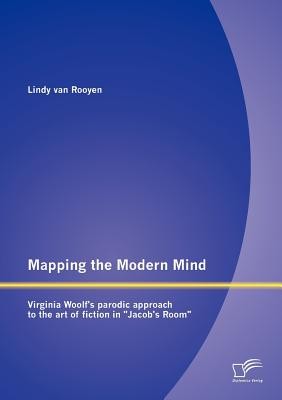
- We will send in 10–14 business days.
- Author: Lindy van Rooyen
- Publisher: Diplomica Verlag
- Year: 2012
- Pages: 119
- ISBN-10: 3842878559
- ISBN-13: 9783842878556
- Format: 14.8 x 21 x 0.7 cm, minkšti viršeliai
- Language: English
- SAVE -10% with code: EXTRA
Reviews
Description
In this study the author conducts a close reading of Virginia Woolf's first 'experimental' novel, Jacob's Room (1922). Her reading is based on the fundamental premise that the novel is an exploration of fictional form, rather than an exposition of any preconceived idea. Jacob's Room is an essentially modernist text, and is characterised by extensive genre-mixing typical of the art of fiction in the early 20th century. Throughout her study the author analyses the extent to which the novel transgress the 'boundaries' of the novelistic genre. She explores the generic interface between the novel and those genres which are deemed to be innate to Virginia Woolf's sensibility, i.e. the journalistic essay, biography and impressionist painting. The premise of this study leads the author to read the novel on two levels of significance: On the narrative, 'surface' level of the novel, Woolf constructs the tragic life of a promising young Englishman, Jacob Flanders, who dies in the First World War. Simultaneously, on the metafictional level of significance, Woolf, through her garrulous narrator, mocks and evaluates the actions of her characters, experimenting with various points of view in an attempt to define the character of her protagonist. Jacob's 'room' is thus conceived as a 'mental space' in which a modern writer's mind is 'mapped'. The central aesthetic question which is debated in this room or forum relates to the essential art of modern fiction in general and the efficiency of characterisation in fiction in particular. It is argued that Virginia Woolf probes into the epistemic question of the essence of modern man and, in an attempt to capture the essence of her protagonist, speculates on the corresponding literary question how, and to what extent, the 'soul' of man can to be represented in fiction. The author uses this generic approach to the novel as a broad structuring principle for her study of Jacob's Room. After discussing the socio-political context of mod
EXTRA 10 % discount with code: EXTRA
The promotion ends in 23d.20:34:01
The discount code is valid when purchasing from 10 €. Discounts do not stack.
- Author: Lindy van Rooyen
- Publisher: Diplomica Verlag
- Year: 2012
- Pages: 119
- ISBN-10: 3842878559
- ISBN-13: 9783842878556
- Format: 14.8 x 21 x 0.7 cm, minkšti viršeliai
- Language: English English
In this study the author conducts a close reading of Virginia Woolf's first 'experimental' novel, Jacob's Room (1922). Her reading is based on the fundamental premise that the novel is an exploration of fictional form, rather than an exposition of any preconceived idea. Jacob's Room is an essentially modernist text, and is characterised by extensive genre-mixing typical of the art of fiction in the early 20th century. Throughout her study the author analyses the extent to which the novel transgress the 'boundaries' of the novelistic genre. She explores the generic interface between the novel and those genres which are deemed to be innate to Virginia Woolf's sensibility, i.e. the journalistic essay, biography and impressionist painting. The premise of this study leads the author to read the novel on two levels of significance: On the narrative, 'surface' level of the novel, Woolf constructs the tragic life of a promising young Englishman, Jacob Flanders, who dies in the First World War. Simultaneously, on the metafictional level of significance, Woolf, through her garrulous narrator, mocks and evaluates the actions of her characters, experimenting with various points of view in an attempt to define the character of her protagonist. Jacob's 'room' is thus conceived as a 'mental space' in which a modern writer's mind is 'mapped'. The central aesthetic question which is debated in this room or forum relates to the essential art of modern fiction in general and the efficiency of characterisation in fiction in particular. It is argued that Virginia Woolf probes into the epistemic question of the essence of modern man and, in an attempt to capture the essence of her protagonist, speculates on the corresponding literary question how, and to what extent, the 'soul' of man can to be represented in fiction. The author uses this generic approach to the novel as a broad structuring principle for her study of Jacob's Room. After discussing the socio-political context of mod


Reviews